Photo: Josh Brasted/FilmMagic/Getty Images
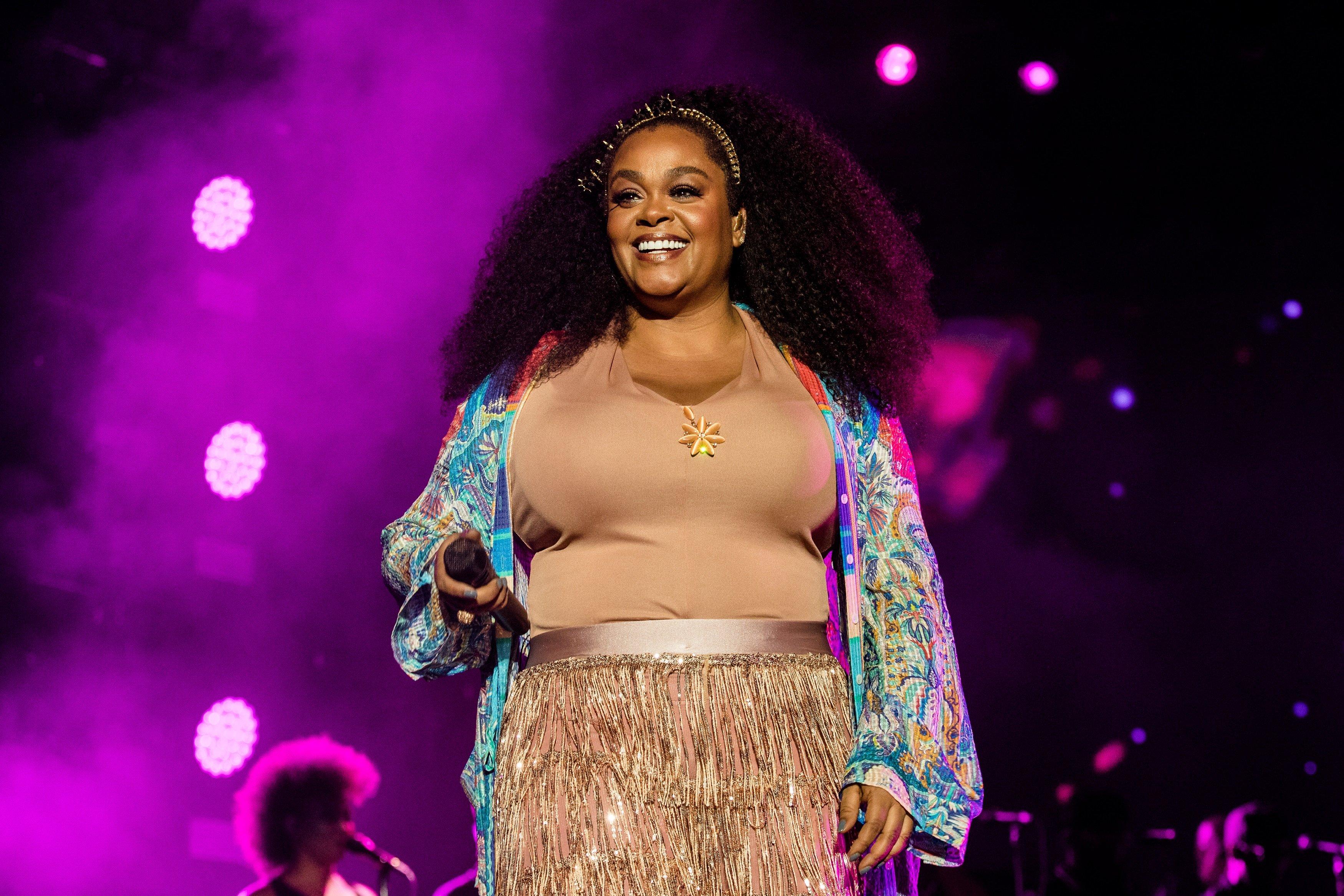
Jill Scott
news
Summer Block Party Returns With Jill Scott, Jazmine Sullivan, Boyz II Men & More
GRAMMY winner Scott will headline all four shows for the fifth annual summer concert series
Live Nation Urban has shared the lineup and details for its fifth annual Summer Block Party concert series, which will feature GRAMMY-winning R&B songstress Jill Scott as the headliner for all four dates.
The concert series will kick off on June 29 in Philadelphia, followed by a July 5 show in Dallas, its first time in that city. The Block Party will return to Houston on July 6 and close out on July 13 in Chicago.
A star-studded list of R&B, soul and hip-hop greats will join Scott as special guests across the dates: GRAMMY-nominated R&B artists and Philly natives Jazmine Sullivan and Musiq Soulchild join their hometown show, which will also feature DJ D-Nice and GRAMMY-nominated rapper Mase, the latter whom will also join the Chicago show. GRAMMY-winning soul singer Anthony Hamilton will help close things out in Chi-town, along with GRAMMY nominee Carl Thomas.
Tweet and GRAMMY winner Faith Evans will perform at the Dallas show, with Evans also joining the other Texas show. GRAMMY-winning '90s R&B group Boyz II Men, along with R&B newcomer Lucky Daye, will round out the Houston show.
Tickets go on sale this Friday, April 5 at 10 a.m. local time; more info here.
Jill Scott, Leon Bridges & More To Headline Afropunk Brooklyn 2019
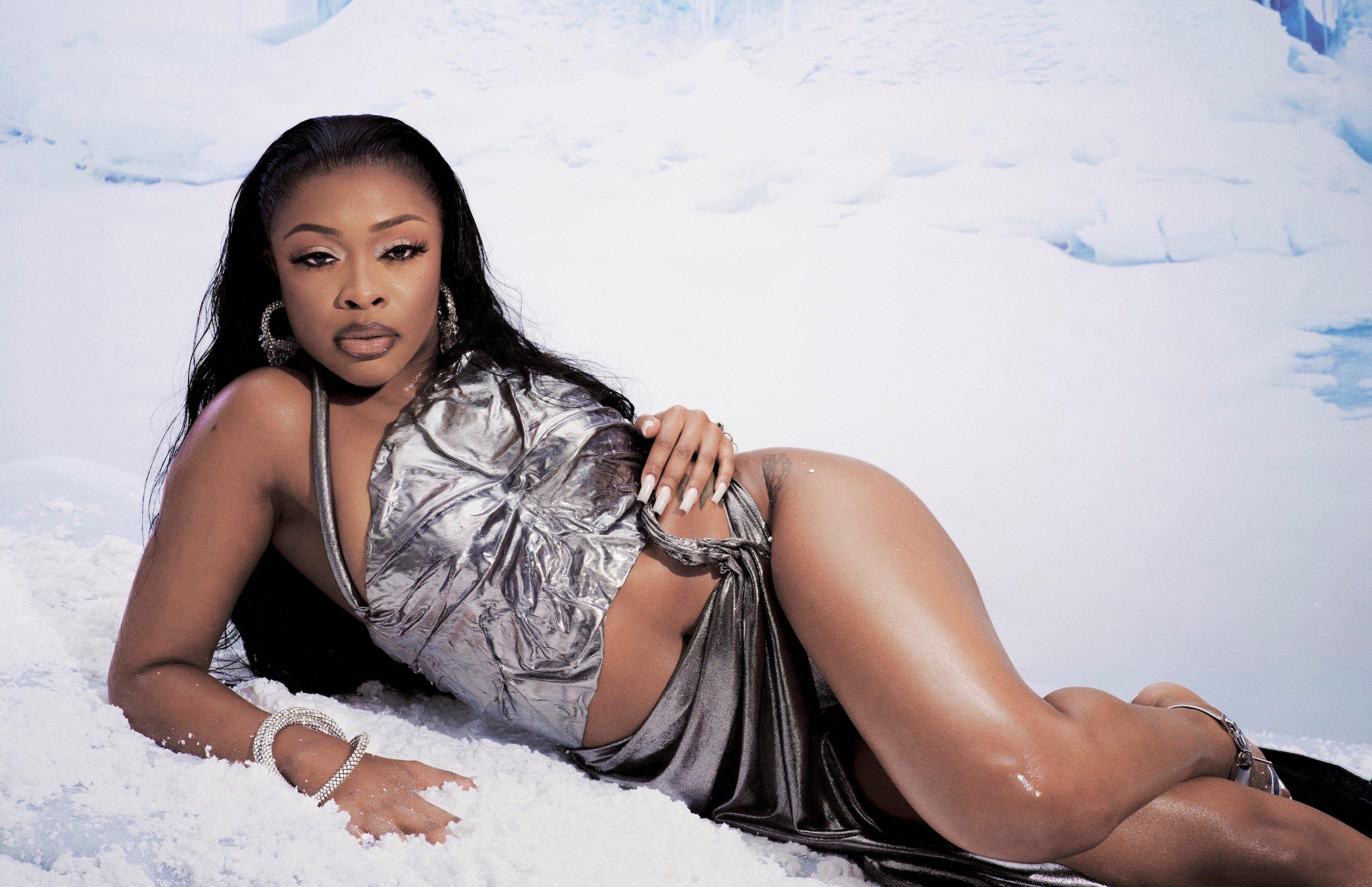
Photo: Alex Harper
feature
With Her 'Winter's Diary' Return, Tink Is Ready To Rep For "The Girls Going Through It"
On her latest album, 'Winter's Diary 5,' R&B songstress Tink perfects the soul-baring storytelling that put her on the map — and further leans into her purpose.
The first time Tink's name was on a lineup with Jhené Aiko, they were at Sacramento's R&B festival Sol Blume in 2022. Two years later, they're billed together again — this time, as tourmates.
Tink is one of four opening acts for Aiko's Magic Hour Tour, which also features Coi Leray, UMI and Kiana Ledé. As the 27-date trek begins winding down with its final stretch of shows (wrapping in Columbus, Ohio, on Aug. 22), Tink can't help but think about how "full-circle" the tour has felt.
"That was just a real manifestation," Tink tells GRAMMY.com, explaining that she's been "praying" for the opportunity since meeting Aiko at Sol Blume. "There's so many R&B girls that could have been in this position. The fact that she brought me on this tour speaks volumes."
Her slot on the sold-out tour signals Tink's growing appeal, and the all-female lineup is no coincidence for the singer. Tink's matter-of-fact storytelling and no-holds-barred approach is what made listeners gravitate toward her, especially women. Fans and critics alike praise Tink for her unwillingness to sugarcoat her emotions, particularly on her Thanks 4 Nothing album, and she continued it with her latest release, Winter's Diary 5, out now.
A long-awaited new installment of her Winter's Diary mixtape series, the project (which, this time, is a studio album) digs deep into her ongoing journey toward self-acceptance in the face of heartbreak and betrayal. From the fed-up lyrics of "Huh," to the sexually charged "Bless Me Don't Stress Me," to the deeply personal "Lows & Highs," Winter's Diary 5 sees Tink holding herself accountable for the failed relationships she sings so honestly about.
"The past few years have been a lot of isolation, and I've had days where I had to lock myself in my room and kind of recoup and get myself right," Tink says. "This album is definitely for those moments when you have nothing to do but face your own thoughts and your reality."
Tink's music has always mirrored her own life, but the Winter's Diary narratives involve more introspection, bringing another level of rawness and vulnerability — as she said in a teaser for WD5, "things only a diary knows." As a result, the Winter's Diary series has largely been the reason for Tink's cult following.
Tink was just 16 when she made her debut with 2012's Winter's Diary, releasing iterations 2, 3 and 4 in 2014, 2015 and 2016, respectively. In between, the Chicago native made a name for herself as a rapper in the drill scene with mixtapes Alter Ego, Blunts & Ballads and Boss Up in 2012 and 2013. Early singles like "Finger's Up" and "Bad Girl" showcased her grit, while her viral hit "Treat Me Like Somebody" revealed her angelic singing voice and vulnerability.
The string of acclaimed mixtapes earned a then 19-year-old Tink a deal with Timbaland's Mosley Music Group/Epic Records as well as a coveted spot in XXL's 2015 Freshman Class. That same year, her song "Million" (which samples Aaliyah's "One in a Million") whet fans' appetite for her debut album, Think Tink. The much-awaited project was slated for a July 2015 release before ultimately being shelved due to label issues.
By the end of 2017, Tink took matters into her own hands and reclaimed her narrative. She launched her own label — appropriately called Winter's Diary — in 2019 and hasn't looked back.
Working independently has brought her greater success, pointing to her resilience, work ethic and prowess as an artist who stops at nothing to get what she wants. It has also sparked quite the creative streak: in those five years, Tink has released five studio albums, one EP and a mixtape.
"I was just really trying to make up for lost time — I want to make sure that I'm keeping my name in the streets and that my fans are fed," Tink says. "As an independent artist, I don't have to adhere to anyone but myself, and that's what's making [the music] feel authentic. What I'm trusting works for me, so the songs I enjoy and feel proud of, I get to push those out. That's the difference."
Now 29, she brings a level of maturity and wisdom with Winter's Diary 5 that can only be learned through trial and error. But even after navigating toxic relationships in the Summer Walker-featuring "Songs About U" and acknowledging her battle scars on "Insane," she ends the album with "Pretty Girls," a powerful self-worth anthem that confidently reminds, "Pretty girls don't beg/ Pretty girls bounce back/ Pretty girls don't trip/ Pretty girls run game/ Pretty girls don't slip."
Whether or not she keeps adding to the Winter's Diary series, Tink is eager to continue growing her fan base and manifesting more big-name team-ups (she has her eye on Brent Faiyaz, SZA, and Drake next). Wherever her career goes from here, she'll always keep one thing on her mind: those who find the same solace in her music as she does.
"So many women and girls who listen to my music really need these lyrics… that's my reason and my purpose," Tink says. "I know my lane is for the girls going through it. I'm telling women's stories."
More Rap News
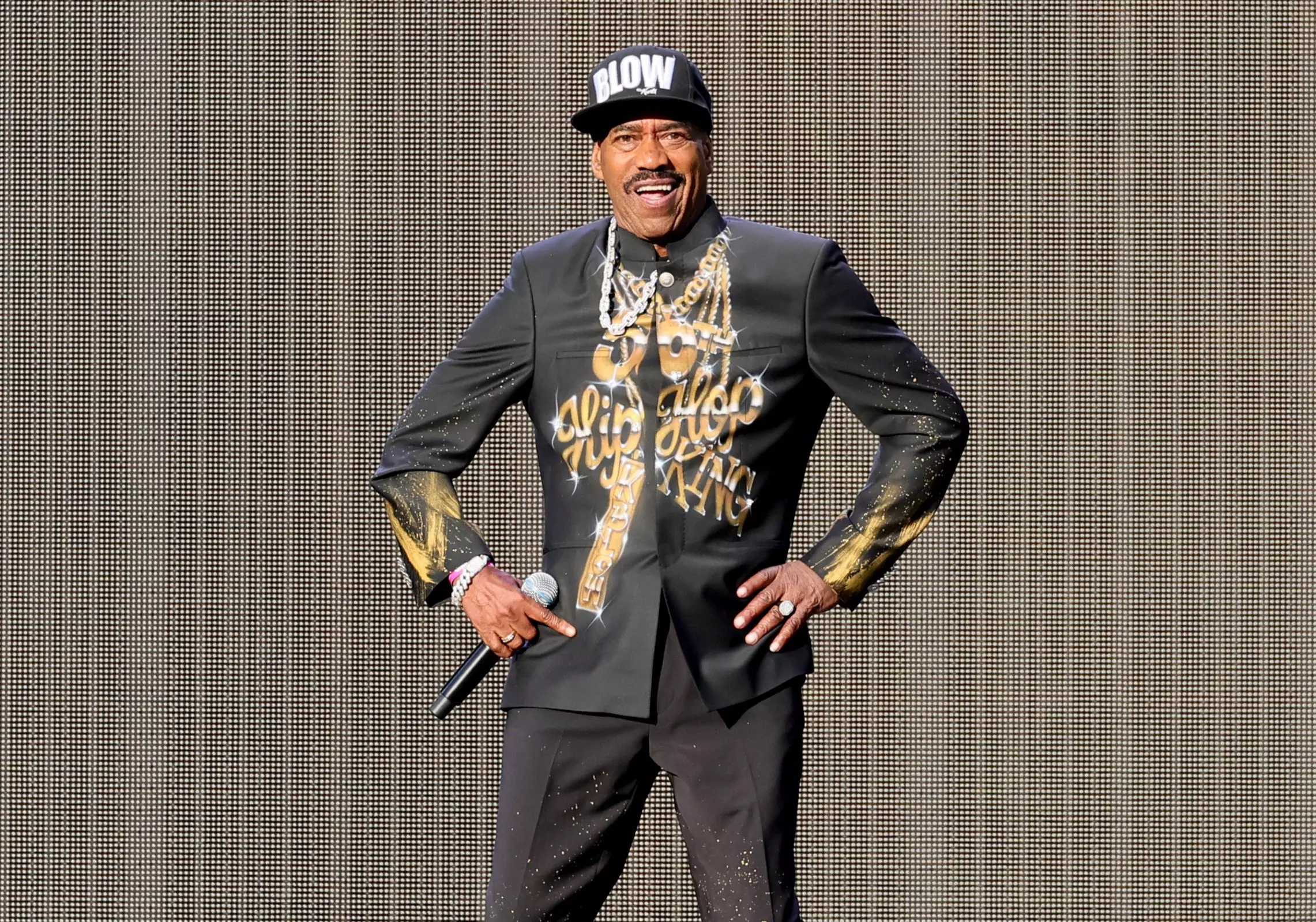
Living Legends: Kurtis Blow On How Hip-Hop Culture Was "Made With Love" & Bringing The Breaks To The Olympics
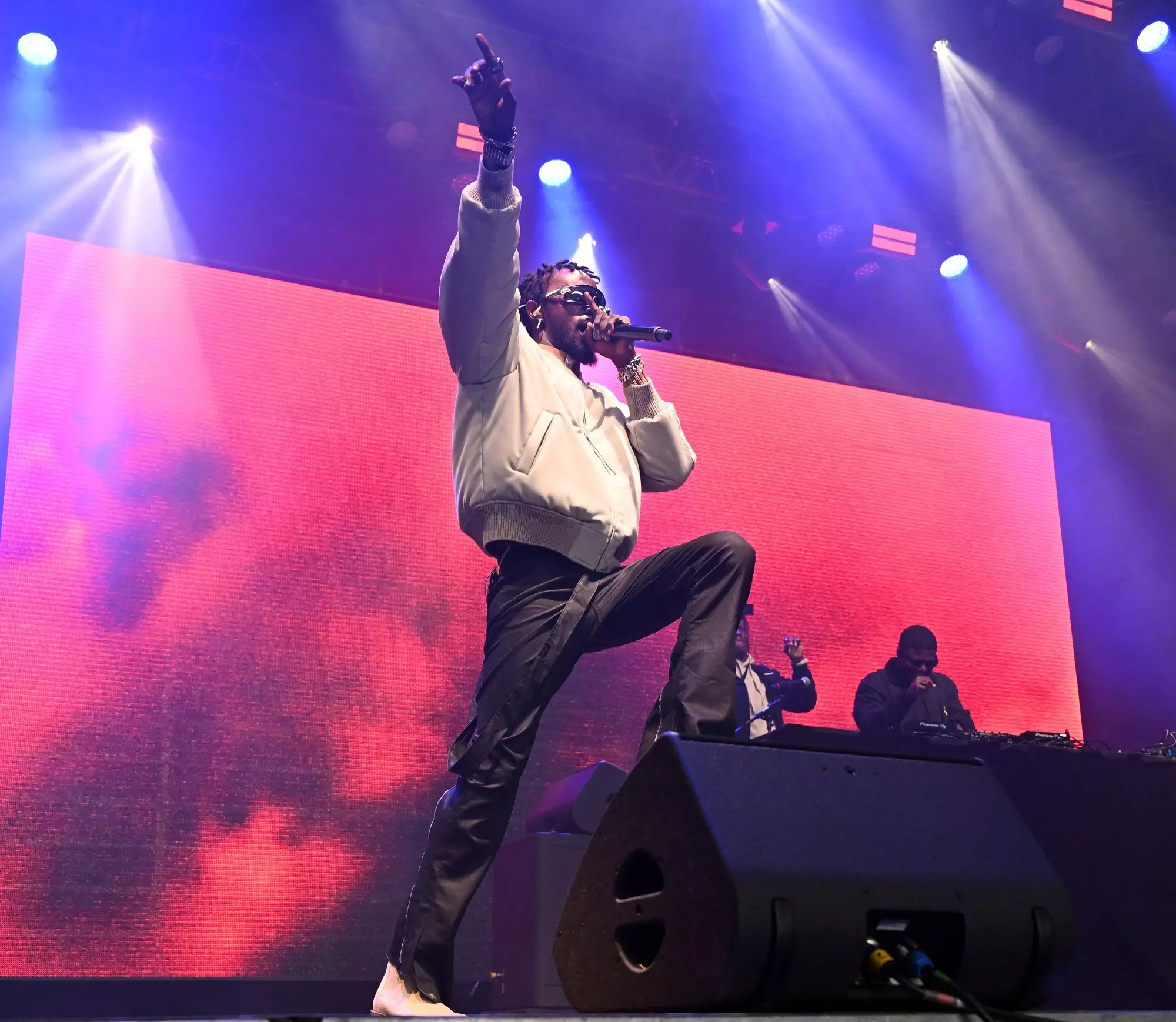
10 Artists Essential To Ghanaian Hiplife: Reggie Rockstone, Sarkodie, Mzbel & More

Ice Spice Is The Drill Queen On 'Y2K!': 5 Takeaways From Her Debut Album

Watch Young MC Win Best Rap Performance In 1990

On Rakim's 'G.O.D's Network (REB7RTH)' The MC Turned Producer Continues His Legacy With An All-Star Cast
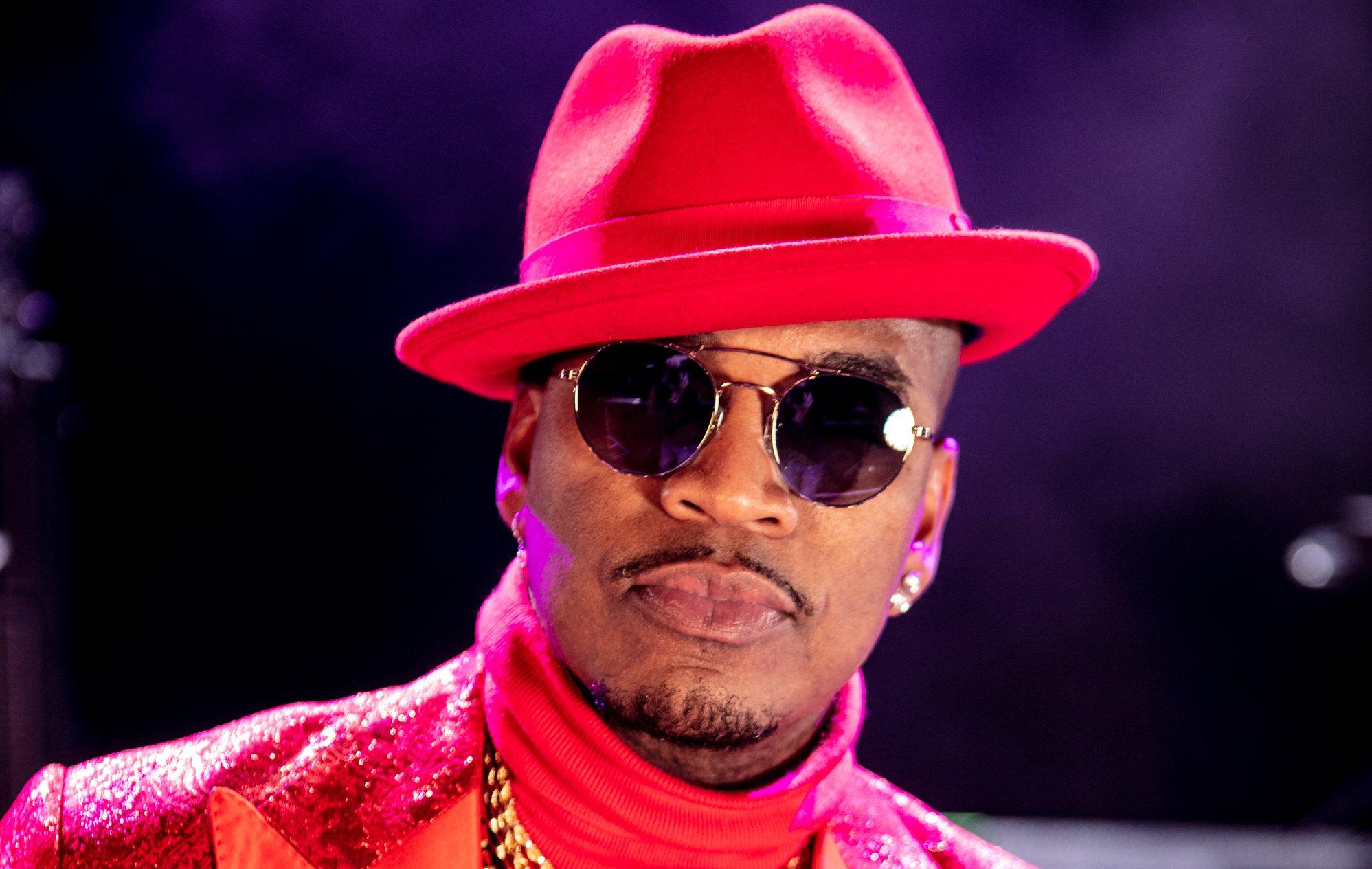
Photo: Courtesy of Vital Versatility
interview
Behind Ne-Yo's Biggest Hits: How Jay-Z, A Wardrobe Malfunction & Stargate Influenced "So Sick," "Closer" & More
As Ne-Yo takes his hit-filled catalog to the Las Vegas Strip, he shares hilarious stories about some of his most popular songs, from a three-minute writing session to a Wembley Stadium moment with Pitbull.
Aug. 7, 2024 was not just another Wednesday in Las Vegas. It was Ne-Yo Day.
No, really: Las Vegas Mayor Carolyn Goodman proclaimed that Aug. 7, 2024 was officially "Ne-Yo Day" in the city, presenting Ne-Yo with a Key to the City during his first night of his three-show Human Love Rebellion residency at the Encore Theatre at Wynn Las Vegas.
It had already been a full-circle day for the R&B hitmaker, who grew up in Sin City and got his start in the entertainment business as an understudy in the David Cassidy-starring show "EFX." As a hometown boy, Ne-Yo knew there'd be at least a few familiar faces in the crowd — and that makes his Key to the City even more special.
"I've run into a lot of girls that were not interested in me in high school and, yes, it's a totally different story now," Ne-Yo tells GRAMMY.com with a smile. "There's a part of me that wants to be petty, but I can't do that. [But] when I run into those that were mean in high school, those are always fulfilling moments."
Ne-Yo's career has been full of fulfilling moments — beginning with his 2005 chart-topping smash "So Sick," and followed by two No. 1 albums, 12 Top 10 hits on the Billboard Hot 100, and three GRAMMY Awards. He celebrates it all with his 100-minute show, which features other favorites like "Because of You" and the diamond-certified Pitbull collab "Give Me Everything."
In June, he began his journey as an independent artist after nearly 20 years with Motown and Def Jam Records, releasing the confessional single "2 Million Secrets" alongside a "CSI"-inspired video he directed himself. With a fresh start, Ne-Yo says he rarely feels like he's already two decades into his career.
"The only time it feels like it's been 20 years is right after a show where my back and my knees are bothering me," he says with a laugh. "If you don't see the age out here, I'm feeling it on the inside!"
Ahead of his Las Vegas residency, Ne-Yo sat down with GRAMMY.com to share his most memorable moments with some of his most beloved hits, from a hilarious wardrobe malfunction with "Because of You" to how Jay-Z helped save "Closer."
"So Sick," 'In My Own Words' (2006)
What instantly comes to mind with "So Sick" is my initial introduction to Stargate. I was at Sony Studios in New York City working with [another] group of producers. [I pass] Stargate's manager — his name is Tim, I met him before briefly. He said, "Hey, are you busy right now? I would love you to come in for a second and meet my producers."
So I walk with him over to the studio — mind you, he says they do R&B, they do hip-hop, they do a little bit of everything. And Tim is Black, so I'm expecting to walk in the room and see two Black guys. I walk in the room and they are absolutely not Black. They are two tall, lanky, white guys with accents. They're from Norway. And I'm like, These guys are gonna do some R&B music for me, huh?
The very first track they played was the music that we now know as "So Sick." I listened to it for like, 10 seconds, and I'm like, "Run it back." So they played it again, and by the time the song finished playing the second time, the song was written. I wrote that song in maybe 3 minutes.
It was a song that needed to be written for a long time. It just hadn't found the right backing music for it yet.
"Sexy Love," 'In My Own Words' (2006)
Here's the first time I realized that Stargate was producing around what I was writing. I wrote "Sexy Love" to the skeletal track they gave me, and then about a week later, I go to the studio and they're like, "You got to hear this." A beat comes on, and it's vaguely what I'd recalled, but completely different. They basically changed the whole beat based around [what] I wrote. So the "Sexy Love" we now know, that was not the original track.
I'm like, "I don't mind, because it sounds great, but why did y'all do that?" And they were like, "We just felt like this direction complemented the song more." They're the only producers that I've ever worked with that do that.
Nowadays, the producer is kind of a celebrity too. Everybody has a tag, and you hear the producer's name before the song starts. You'll never hear that from Stargate. They're like, "You're gonna listen to this song, and you're gonna love it so much that you're gonna ask who did it."
"Because of You," 'Because of You' (2007)
The part in the video where I don't have any shoes on — the performance piece — that was not by design. I don't remember who styled that video, but all the shoes they brought were too big. [They] were 11 1/2, I'm a size 10. But I couldn't do it barefoot, so I'm like, "Alright, let's just do it."
So I'm dancing, and then whoop! There goes one shoe. I look at the director, and he's like, "Just keep going!" So I kicked the other one off, and just continued doing what I was doing.
I've danced barefoot and in socks in the kitchen, you know, trying to moonwalk and all of that countless times as a kid. But I'd never done it as an adult. It was a bucket-list moment, scratched it off: performed with no shoes.
"Closer," 'Year of the Gentleman' (2008)
I wrote it with the intent of selling it to somebody who would make more sense with that style. We stayed overseas for damn near two years, just touring around. While I was over there, I started listening to a lot of house, techno, EDM. With a lot of those songs, there might be two words in the whole song just repeated over and over. But I'm paying more attention to what the music is doing to the people that are listening… Everybody goes nuts. These people are getting this kind of response with no words!
So I'm like, imagine if somebody took that energy and wrote a song over it that actually means something — it'd be double the effect, right?
Me and Stargate get in the studio. They start putting together the track, I write the song, it's done. We're listening back, and I'm like, "Yeah, we will be able to sell this easy." And they're like, "Sell it? No, no, this is yours." And I'm like, "Nah, I don't think my fan base is gonna understand that."
I let my management hear it, and they're like, "Yeah, this is yours." I let Jay-Z hear it, [and he's like] "Bro, this is the one!" I'm like, "What are y'all hearing? Because I don't get it."
I did not expect the song to do well. And for the first three, four months, it didn't. Here in the States, nobody was feeling it, to the point where we walked into the label one day with the total intention of telling L.A. Reid we should switch to another single. As we're walking to L.A. Reid's office, Jay-Z stops me and goes, "I know you about to tell him that you want to get off that record. Do not get off that record." And I'm like "Bro, it's been four months!"
That same year, we did the BET Awards. I performed "Closer," and the Jabbawockeez was a part of the show. After that performance, that song took off. My manager hits me with the "I told you so" every single time we think of "Closer."
"Miss Independent," 'Year of the Gentleman' (2008)
"Miss Independent" was the first time I ever won a GRAMMY. I learned through winning a GRAMMY for that song that there are GRAMMY wins that are not televised.
I'm walking the red carpet, just soaking it all in, taking pictures, doing interviews, and as I'm talking to some interviewer, this girl blows by me and goes, "Congratulations, you just want a GRAMMY," and keeps walking.
So I go to my manager, I'm like, "Yo, um, did we win?" And he's like, "F—, who told you?" And I'm like, "I don't got my speech!" He's like, "You don't need a speech. You won for a category that's not televised, so you're not gonna get on stage."
It was kind of bittersweet, because I've been dreaming of a GRAMMY since childhood. I have my acceptance speech written already. I was gonna get up on stage and thank my mom, and do the whole thing, like, "Oh wow, this thing's heavy!"
I've won three GRAMMYs, and I've yet to walk across the GRAMMY stage and thank my mom. I might just do a Kanye. I might just walk up on stage when somebody else is accepting their GRAMMY and go, "Hey, congratulations, but while I'm here — um, yeah, never got to do this before, so" and just have somebody bring mine out and do it right then. I think that'd be a moment! And then I'd instantly get arrested and kicked out of the GRAMMYs and banned forever. [Laughs.]
"Give Me Everything," Pitbull's 'Planet Pit' (2011)
We were in the U.K., Wembley Stadium, 80,000 people, me and Pitbull [for Capital FM's Summertime Ball in 2015]. Right at the part where it says, [sings] "Grab somebody sexy tell 'em hey," 80,000 people [are] jumping up and down at the same time. The whole place was shaking. It felt like electricity shooting through you, there was just so much energy coming at the stage. I literally felt sparks.
Pitbull felt it too. After the show, he was like, "Yo, right at the part where we went—" and I was like, "YO I know right! You felt it too?"
Me and Pitbull are actually really good friends. I met him before he became Mr. Worldwide and started wearing the suits and the whole nine. We've actually done a bunch of music together that the world has never heard.
Pitbull is not your typical celebrity. From a guy who's having the success that he's having, you would expect an ego, a big, huge entourage, and a whole bunch of commotion around him. He doesn't club. He does the most amazing party music ever, and he doesn't go to regular clubs. Pitbull's definition of a club? He has his own island, and he'll just invite you to the island.
"2 Million Secrets" (2024)
The song is about owning your s—. No one is perfect, no one is above making a mistake. But no one is beneath redemption, either. I absolutely made some mistakes in my previous marriage. And, you know, one thing that music has always been for me is therapy. If I have things that I couldn't say out of my mouth, I could write it in a song.
It took a little bit of growing up, maturing, for me to even write that song. For whatever reason, when you do something wrong and you know that you're wrong, my first instance was to place blame on anybody but myself. I quickly realized that that's not the way to heal, that's not the way to move on, that's not the way to receive redemption for what you have done. You have to own your mistakes… and then pray for redemption and acceptance of your apology from the people that you've wronged.
Writing the song was very much therapeutic for me. I don't even call it a song. It's more of a confessional — it's me confessing to the wrongs that I did, and realizing that the best way to go about it is to get it out and then figure out how to move on. And that's exactly what me and my ex-wife have done. We moved on. We're in a great place now.
More R&B News
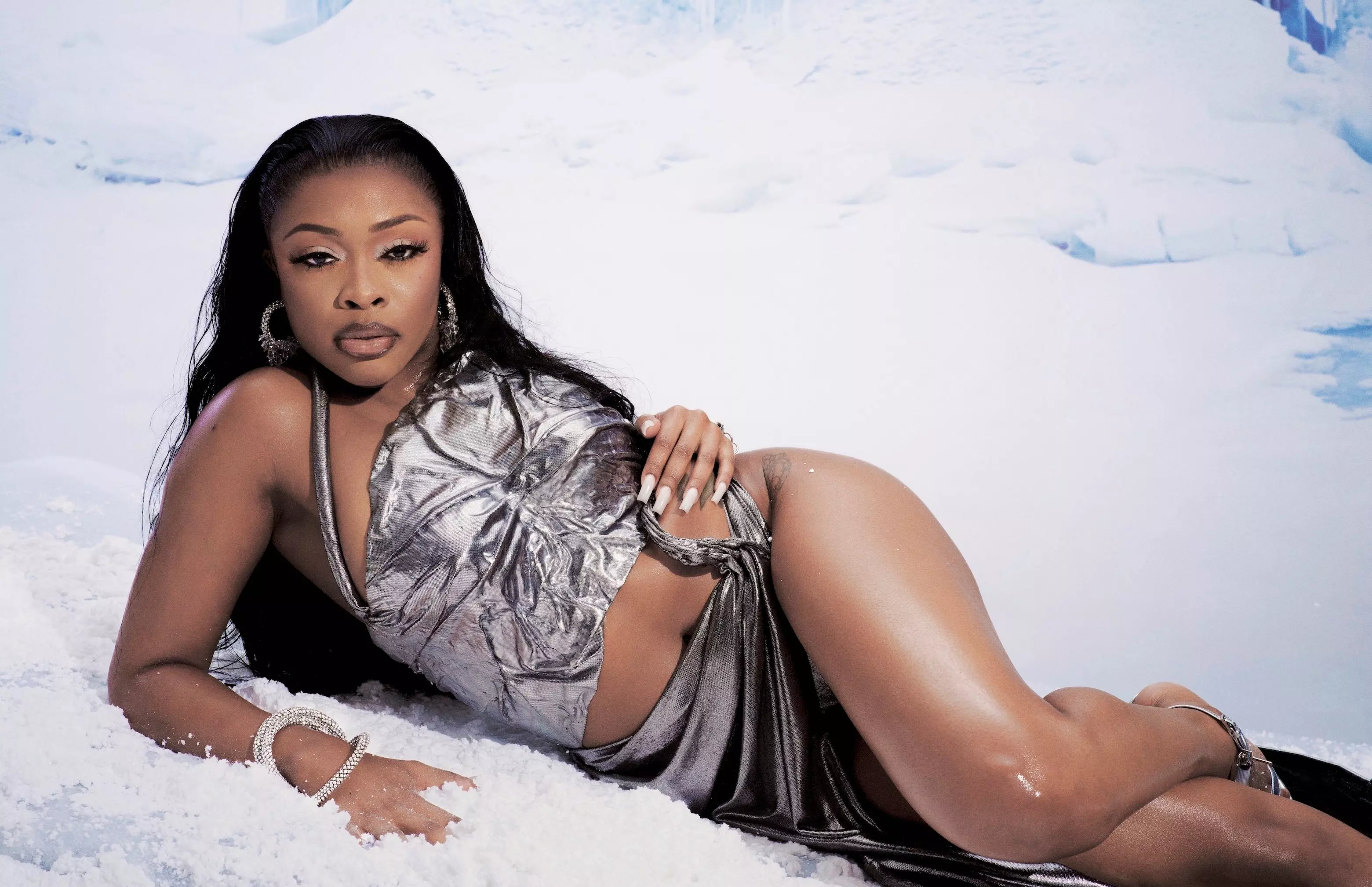
With Her 'Winter's Diary' Return, Tink Is Ready To Rep For "The Girls Going Through It"
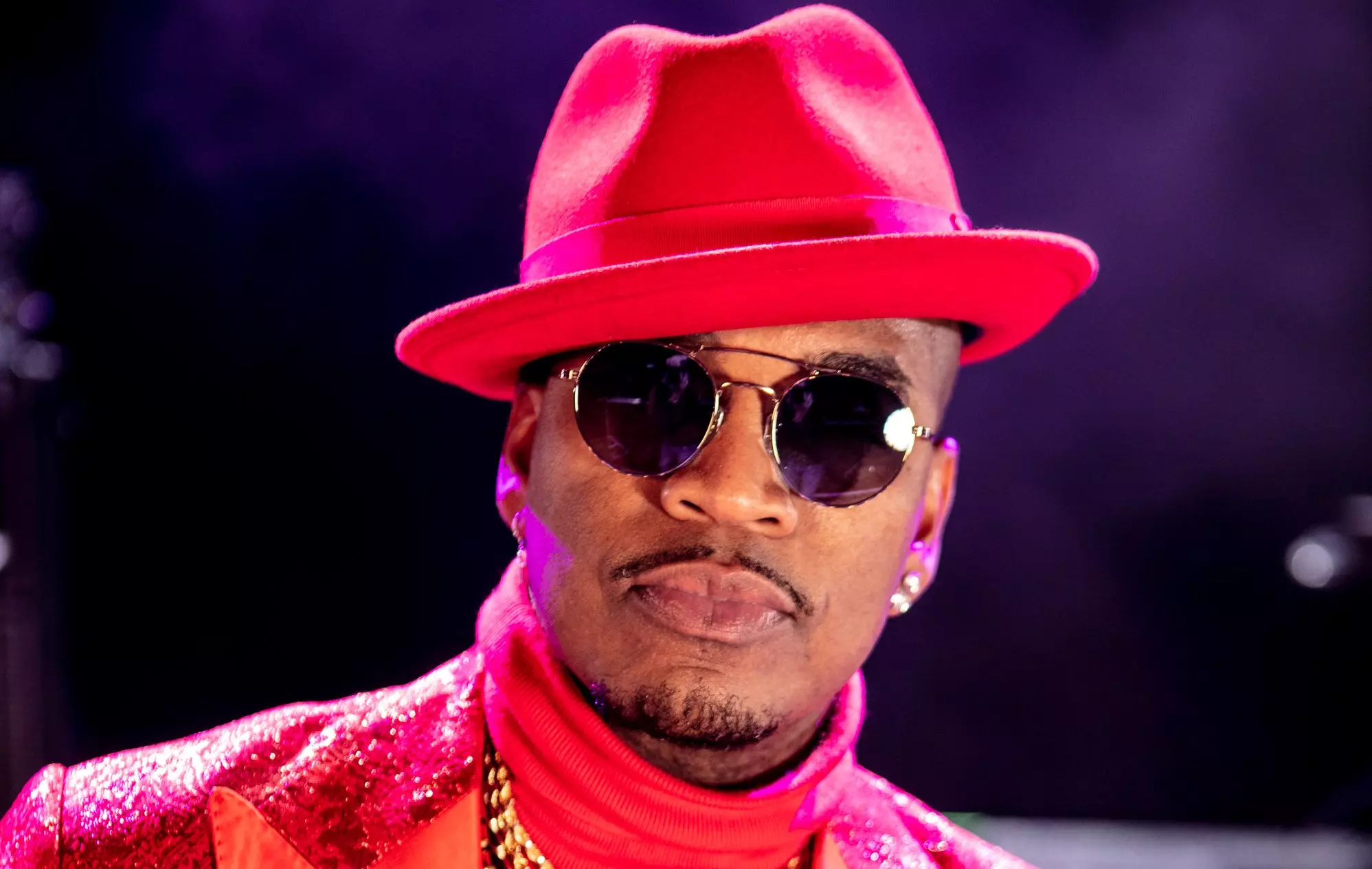
Behind Ne-Yo's Biggest Hits: How Jay-Z, A Wardrobe Malfunction & Stargate Influenced "So Sick," "Closer" & More
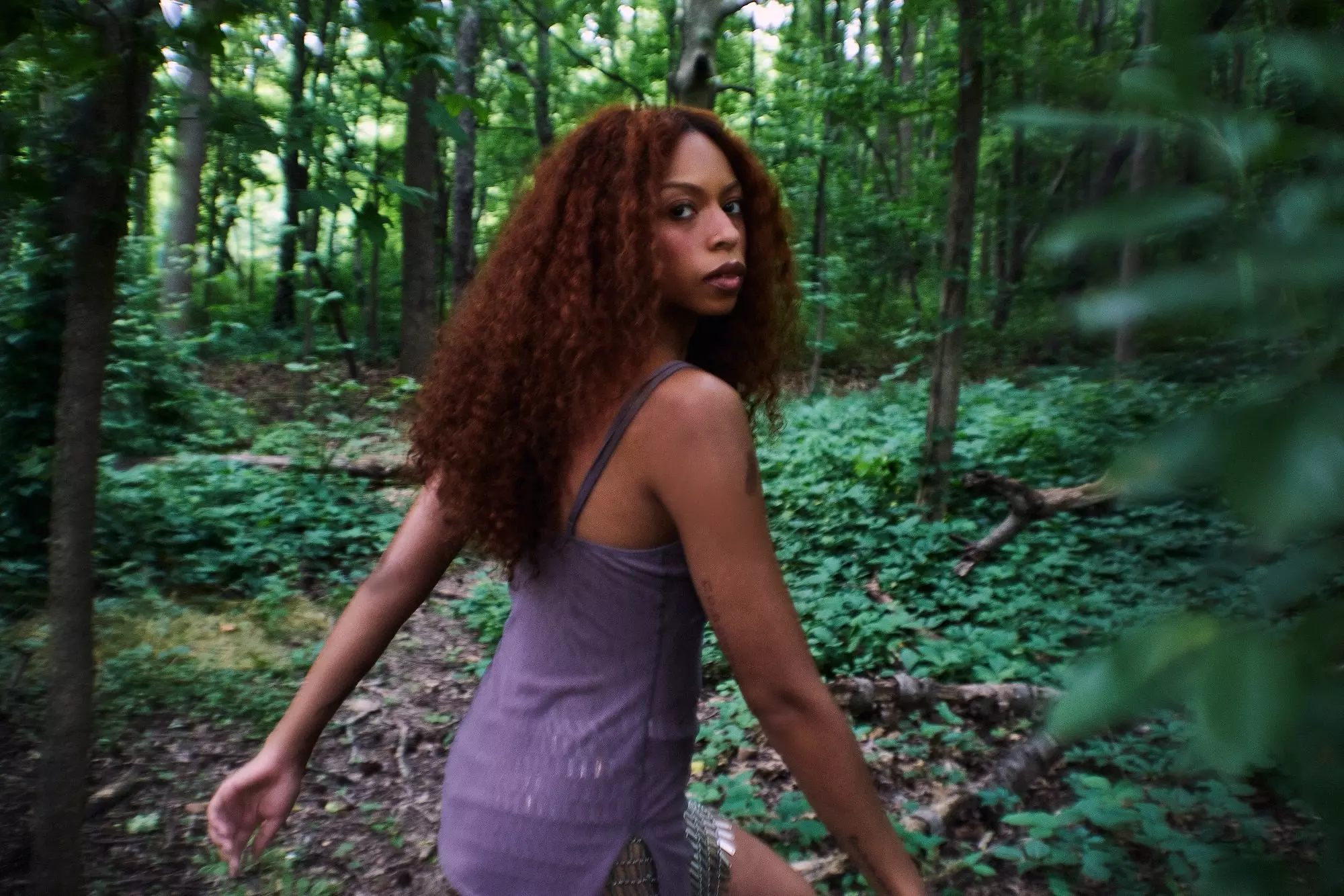
How Ravyn Lenae Found Comfort In Changing Perspective

Ayoni Performs "Bitter In Love"

Watch Stevie Wonder Win Album Of The Year
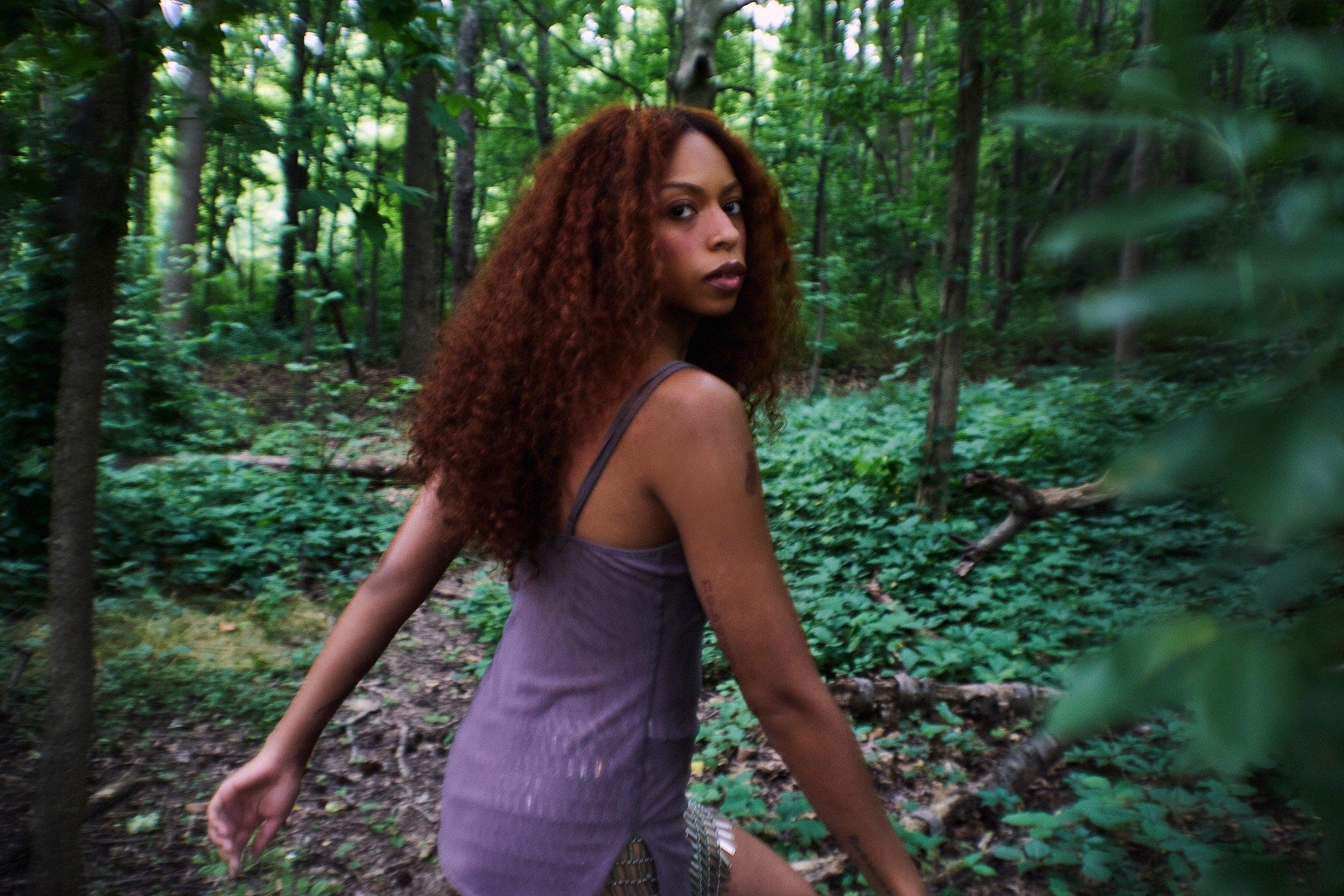
Photo: Xavier Scott Marshall
interview
How Ravyn Lenae Found Comfort In Changing Perspective
"I really wanted to give people a glimpse into my life," Lenae says of her new album, 'Bird’s Eye.' The singer/songwriter discusses taking the right risks, and the song that helped repair her relationship with her father.
With massive crowds and countless critics raving about her debut album, Ravyn Lenae knew what she had to do: completely ignore all of the expectations that led to it.
"I knew in order for me to keep evolving as an artist and a person, there was no choice but to let those boundaries go,"she says from her home in Los Angeles.
After building up a growing following in Chicago alongside other members of the Zero Fatigue Collective (which includes producer Monte Booker and rapper Smino), Lenae relocated to the West Coast. She made a massive mark on 2022’s Hypnos, which featured a beguiling mix of alt R&B, house and soul alongside Renae’s magnetic vocal presence.
And rather than coast, Lenae dug deeper for the followup, Bird’s Eye (due Aug. 9). Working with frequent Kendrick Lamar collaborator and in-demand producer DJ Dahi, Bird’s Eye flutters across genres and influences — pulling from Fleetwood Mac on one track, drawing in Childish Gambino on another, and adding Jimmy Jam’s bass elsewhere. Indicative of these multifarious influences are two pre-release singles: the retro pop-leaning "Love Me Not" and the soulfully skipping "Love Is Blind."
Lenae uses that shapeshifting methodology as a way to interrogate the concepts of love and relationships — never content to rest on her laurels, learning how best to grow and adapt. "Making the songs and getting to the bottom of what they meant for me was me kind of retracing my steps a little bit and really acknowledging all these moments in my life, in my childhood, that were pivotal for me and my identity," she says.
Nearing the release of Bird’s Eye, Lenae spoke with GRAMMY.com about directing the video for "Love Me Not" in Chicago, blending Brazilian music with Prince inflections, and how the album helped her reconnect with her father.
A lot seems to have happened in the two years since 'Hypnos.' On a month-to-month, day-to-day basis, how much do you shift creatively?
It feels like night and day to me, even though it's been a really short amount of time. During this time between Hypnos and this album — the recording and creating process — a lot unlocked with me. [There was] a lot of personal growth that happened that allows me to approach music in a much freer and kind of impulsive way.
With the last album and that process, I think I did place a lot of parameters around what I had to be, what I had to sound like, what it had to feel like, who I had to connect with. And I kind of just released all of those expectations with this and made music that I wanted to hear.
How easy was it to actually release those boundaries and work more more in the moment?
I knew in order for me to keep evolving as an artist and a person, there was no choice but to let those boundaries go, if I wanted to keep pursuing music in a way that felt honest. And then being able to collaborate with people such as Dahi, who has kind of mastered that in a lot of ways, and learning from him and seeing his process, seeing how easy and natural it is to just fall into what feels right…
I think the longer you're in an industry or you're in something, the more rules you place on [creativity] and the more you overthink it and try to mold it in a way that doesn't feel impactful. As an artist, being around him and him encouraging that type of process, I think that was a lot of it, too.
Dahi's worked with some incredible artists, and clearly in a way that accentuates that artist rather than making it about DJ Dahi. That must have been so perfectly aligned with your openness, to go in and let yourself learn what you wanted to do. They always say if you know too much and plan everything out, you’ll end up stifled creatively.
It's so true. And that's why I describe it as me kind of returning back to that 12-year-old me, that 13-year-old me, before I cared about opinions, what people thought about me and what I was doing, what I was wearing. I think we start off that way, and then the older we get, the more we get so self-conscious and we judge ourselves more harshly than everyone else.
Why do we do that?!
[Laughs.] I think it's just human nature. And then we try to unlearn all of it.
Even just in daily life, it's so hard to not think about what I could have done at any given moment. And when you’re creating music, there are 5 million ways you can create the same idea and you have to just land on that one.
A hundred percent. During this process, we would have a song idea and then three different versions of that song that hit completely different feelings — maybe a more soft rock version of it, maybe a more indie version of it, maybe a more soulful version. Then it was about having to settle into what is "the one" and what feels the best, versus like what's going to chart or what's going to get in the club. Having to release all of that and just really lean into what feels good is what works every time.
That relates even to how the album was announced, with two tracks that almost speak in conversation with one another. Those songs balance such clever hooks with more nuanced conversation about how conflicted and complex love and relationships can be. How did you find that balance between emotional realism and such immediate music?
It was just really feeling empowered and confident in my decision making. And that's something that's developed over time, too. Really listening to my voice and what I want out of music in my career and my rollout, you know?
Listening to that, obviously having people around me who are like-minded in that way like my management and my team. We all kind of empowered each other to lean into those feelings. At no point in this process did anything feel forced or like I was reaching for something.
That’s so interesting. You want your team to feel supportive but you also want to feel empowered to take risks away from that support. And that reminds me of “Love Me Not,” which has some really smart risks. It's that vintage pop feeling, right down to the clap-along beats, and the vocals feel right in your ear. So when you started working on that track, for example, did you always imagine it being that nostalgia, that warmth?
I thought that there was just something so cool and timeless, a classic feeling about it. And my songs are the ones where you can really pinpoint what the influences are, or when this was made, or the person behind it. Having a song like that, that really reminded me of Outkast. Like, What is this?
Even before it dropped, I remember having some anxiety around maybe my fans not liking it because it feels a little different from Hypnos. I think anytime you kind of jump outside of the bubble you've kind of created, it's scary because there are people living in that bubble with you who like the temperature in there.
It’s so important to be constantly revitalized in your work. If you’re doing the same thing, even if your fans are demanding it, you’re not going to get that. And hopefully when your fans see all that you can do, they’ll follow it.
Yeah. And there's so much left in me to explore into and put out into the world. And look at an artist's career, someone like Tyler, the Creator: Seeing where his sound started and how he's almost trained his fans’ ears to be receptive to something new every time. They've completely grown up with him in a lot of ways and expanded their palate. Kind of forcing the hand of listeners is something that's really interesting to me. [Laughs.]
I love that idea of pushing yourself and pushing your fans, but still within the realm of what's good. [Laughs] Not just experimenting for the sake of it. Speaking of growing and experimenting, I wanted to ask about the “Love Me Not” music video that you directed. It feels so well shot but still so intimate and casual.
I knew with the album and how I wanted the imagery to feel, it would be very homey. Making the songs and getting to the bottom of what they meant for me was me kind of retracing my steps a little bit and really acknowledging all these moments in my life, in my childhood, that were pivotal for me and my identity, those first moments where I felt like I was getting closer to myself in a way.
A lot of that started on the South side of Chicago, at my grandmother's house, in the basement. Even the cover of the album symbolizes that transition for me. That's where I dyed my hair red for the first time in the basement, in the sink, so coming back to the sink and dyeing my hair ginger on the cover was something that felt so powerful and defining for me. It just made perfect sense that we were going to go back to Chicago for the first video, in my grandmother's house, with all my family members involved. Those are my grandparents, my mom, my sisters, so that's why it feels so loose and candid. I really wanted to give people a glimpse into my life and what it felt like walking into my childhood home.
Getting to see a place through someone else’s eyes is so extraordinary. It really makes the little details pop. For example, the plantains cooking on the stove at the beginning.
Yeah. I associate plantains with my grandparents, my family. We’re of Panamanian West Indian descent, so those smells and those sounds, I really wanted to incorporate into the video.
That really speaks to bringing some comfort along with the risk-taking, same as having your family around. The features do a great job of bolstering you, setting up that stability, particularly Ty Dolla $ign on "Dreamgirl."
I think we just had the idea to kind of take the song into a different world in a way. When we first started the first section of the song, I just knew there was magic there. Those Prince drums and that Brazilian guitar — why do those make sense together? It shouldn't ever make sense together. But when I heard it? Oh my god, this feels like something fresh and new, but also like I've felt this feeling before.
Dahi's brain is just incredible, and then even bringing in Jimmy Jam on it to do bass was a dream come true. I knew it kind of felt like it existed in that Janet stratosphere, and I thought it would be such a cool touch for him to do that personally. Dream come true on all spectrums. I love Ty Dolla $ign, obviously grew up listening to him. He's incredible and I was so honored that he wanted to do it.
Besides Janet, were there any particular artists who were kind of central inspirations for this album specifically?
Sonically, Janet is always in the mix. With this one in particular, some Gwen Stefani, No Doubt, a little bit of Fleetwood Mac in there. I just love taking these worlds that are very different from each other and kind of mashing them and seeing what happens. It's like my favorite thing ever.
You’re trained in classical music, and it's so clear that you understand the range of emotion that you can convey. I'm just curious what happened when you went into recording — or even before that, in the writing. What was it like digging into yourself to find the narrative that matched the mashing?
Honestly, I don't think there was much premeditation with the writing and what I wanted to touch on in a way. Really leaning into those impulsive initial first feelings that a song gives me is something I really valued with this album. And moving forward, that'll be my process.
What was premeditated with the writing process with this album was, with every song, trying to really peel back those layers in my brain and those barriers lyrically. Like, What would I naturally say? Think of that and then think, Okay, how can I make this even more literal, even more personal? Even in working with my girl [songwriter] Sarah Aarons, I learned a lot from her as far as songwriting and how to really paint a picture that feels clear and concise and emotional. Not trying to find the prettiest words or the most interesting words, but really writing what feels real. And that's something that I've really, really valued and learned with this process.
Even with “One Wish” with Childish Gambino, the whole album feels like this big conversation on relationships. Being more direct feels like some advice someone would get with a relationship itself, let alone writing about it. Did that process help you actually process what was happening in your life too?
Oh man, 100 percent. And that's why music is so beautiful to me. It's really a means of opening dialogue between me and myself, and then me and the people in my life. With a song that's so important to me like “One Wish," it’s not just because it's a great song, but because this has really catapulted me into this different part of my life and repairing relationships, opening up difficult conversations — like with my father in particular. Hearing such a simple song and the response I've gotten from it has only validated me much more in the fact that these real stories, real emotions are what connects.
Have you played the album for your father?
We started repairing or rekindling our relationship maybe two years ago. The making of Bird’s Eye was at its peak and I felt like it was important for me to have a song on the album that addressed my relationship with him in order for me to release it and start to move on in a positive way.
So sharing the song with him, inviting him to be in the music video was huge for us. And then even after debriefing about maybe some feelings that came up when he heard certain lyrics or when he saw certain scenes in the video, it just opened up this really honest, candid dialogue between us and I couldn't be more grateful that I have this outlet.
More R&B News

With Her 'Winter's Diary' Return, Tink Is Ready To Rep For "The Girls Going Through It"

Behind Ne-Yo's Biggest Hits: How Jay-Z, A Wardrobe Malfunction & Stargate Influenced "So Sick," "Closer" & More

How Ravyn Lenae Found Comfort In Changing Perspective

Ayoni Performs "Bitter In Love"

Watch Stevie Wonder Win Album Of The Year
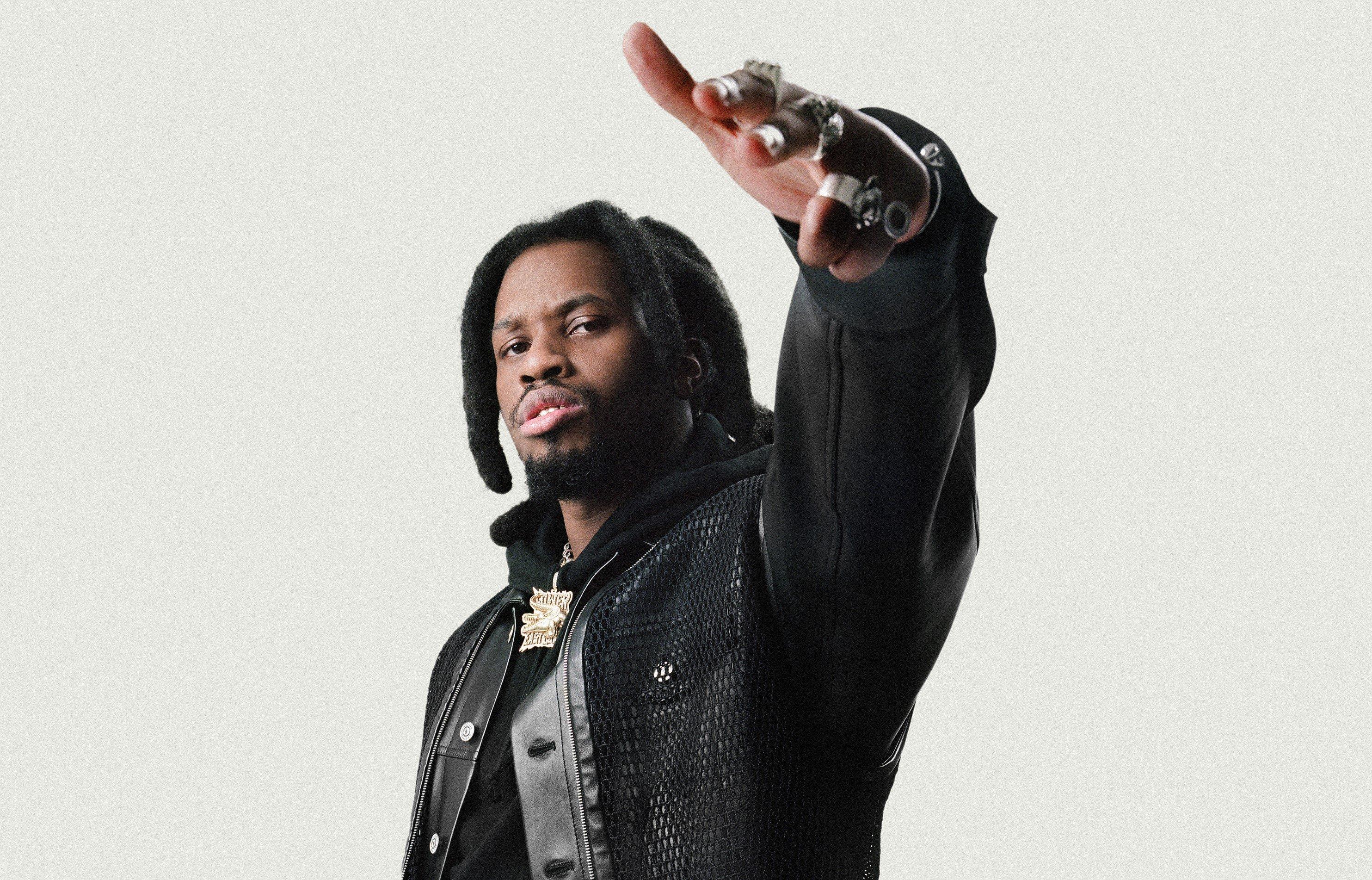
Photo: Giovanni Mourin
interview
Denzel Curry Returns To The Mischievous South: "I've Been Trying To Do This For The Longest"
Over a decade after he released 'King of the Mischievous South Vol. 1,' Denzel Curry is back with 'Vol. 2.' The Miami rapper details his love of Southern hip-hop, working on multiple projects, and the importance of staying real.
Denzel Curry isn’t typically one for repetition. His recent run of critically acclaimed projects have all contrasted in concept and musicality.
The Miami Gardens native has cascaded through boom-bap, synth-soaked trap metal, and cloud rap throughout his catalog. But on his upcoming project, King of the Mischievous South Vol. 2, Curry returns to the muddied, subwoofer-thudding soundscape that he captured on the first installment back in 2012.
Curry was just 16 when he released King of the Mischievous South Vol. 1 Underground Tape 1996]. "I was a kid, man," Curry tells GRAMMY.com. "I was just trying to emulate my favorite rappers at the time who really represented the South. That was pretty much what I was on at the time – the Soulja Slims, the No Limits, but mostly Three 6 Mafia. And then I just put Miami culture on top of that."
Curry first explored the rough-cut "phonk" of Southern acts like DJ Screw and Pimp C as a teenager. His first mixtape, King Remembered Underground Tape 1991-1995, caught the attention of then-rising rapper and producer SpaceGhostPurrp. He shared Curry’s project on his social media accounts, making him an official member of South Florida’s Raider Klan.
Read more: A Guide To Southern Hip-Hop: Definitive Releases, Artists & Subgenres From The Dirty South
The now-defunct group is well behind Curry, who’s ascended from the infancy of his early SoundCloud days to mainstream success. But the rapid-fire delivery and hazy, rough-cut sounds of early Southern rap are still soaked into his musical fibers.
Reignited by the same musical heroes that led to Vol. 1, Curry is comfortable in old sonic form. Vol. 2's lead singles "Hot One" (feat. A$AP Ferg and TiaCorine) and "Black Flag Freestyle" with That Mexican OT fully capture the sharp-edged sound that stretched from Port Arthur, Texas to the Carolinas.
The rapper wanted to go back to the KOTMS series nearly a decade ago, but other projects and outside ventures derailed his return. "I tried to do this thing multiple times," Curry tells GRAMMY.com. "I remember revisiting a [social media post] from 2015 that was like, ‘KOTMS Vol. 2055 is now going to be called Imperial.’ I’ve been trying to do this for the longest."
A string of bouncy, syrup-pouring, and playalistic Southern trap songs led him back to familiar grounds. The new 15-song capsule features Juicy J, 2 Chainz, Project Pat, That Mexican OT, Maxo Kream, and others inspired by the same pioneers that fall below the Mason-Dixon line.
GRAMMY.com sat down with Curry before the release of King of the Mischievous South Vol. 2 on July 19. The "Ultimate" rapper revealed his "Big Ultra" persona, his ability to crank out hits from his bedroom, and his recent discoveries being "outside."
This interview has been lightly edited for clarity and length.
What inspired you to revisit the 'King of the Mischievous South' series?
I was making two projects at once, and there was a through-line from the second half of the project. The second one I was working on kind of just manifested itself into what it is today, 12 years later. And it’s called King of the Mischievous South Vol. 2 because it has the same sonics as the first one.
You mentioned Three 6 Mafia being a big inspiration for Vol. 1. But what about Vol. 2?
The first KOTMS was obviously Three 6 Mafia, and then Lord Infamous was really the person I looked up to, God rest his soul. I get my rap style from him — the rapid flows and stuff like that. You can even hear it on "Walkin’" and "Clout Cobain." But since I’m from Miami, I’m talking about stuff that predominantly happens in Miami. And I’m influenced by Soulja Slim, Master P, DJ Screw, UGK, Trina, Trick Daddy, and Rick Ross.
How did you juggle the two different projects at once?
When I wasn’t working on one project, I was working on the other one. Sometimes I would be working on the same two projects on the same day. I was like, If this one won’t see the light of day until next year, this one has to hold fans over. And the one that was supposed to hold fans over ended up having a crazy through-line.
What were the studio sessions like?
When it came down to the production, I was just making these songs on the fly. A couple came out of Ultraground sessions, but the majority of the songs were made in my bed — just how it was with the first one. "Hot One" was made in my house downstairs, and "Hit The Floor" was made in a random room in an AirBnb. And I think the rest of the songs were made in an actual studio.
I was just flowing, doing my thing, and figuring things out. I was working on one project, and when I wasn’t getting called back to the studio, I was working on another one on the side. The grind didn’t stop.
Was there an element or feature that you really wanted to explore?
I just knew I wanted certain rappers to be featured on [project]. When I was working on "Set It," I originally wanted PlayThatBoiZay. But he didn’t get the record done or whatever the case may be. So, I sent it to Maxo Kream, and he ended up just doing it. And when I made "Wish List," I got Armani White on it. Me and him came off of doing "Goated," so getting that record done was really simple. He pulled up to the studio and he said, "This is tight," and then jumped on the record.
Some stuff didn’t make the cut because we couldn’t get certain people. But the majority of the stuff that made the cut, we were like, "Yes, we did that." Then having people like Ski Mask the Slump God, 2 Chainz, Project Pat, and Juicy J — all these guys played a role. I’m getting people from the South, whether they’re from Texas, Florida, or the Carolinas. And even people outside of the South, like A$AP Ferg and Armani White, they’re all influenced by the same artists.
Learn more: A Guide To Texas Hip-Hop: Definitive Releases, Artists & Events
Your persona on the album, "Big Ultra." Break that down for me.
This is how the name came about — my boy’s nickname is Mr. Don’t Fold. It’s kind of a play on "Mr. Don’t Play," so we came up with "Big Ultra" because I’m doing "ultraground" stuff. It wasn’t on some superpower s—, it’s just me, pretty much. It’s how I wanted to be presented on this tape. It’s just me at the end of the day, it’s no persona.
You’ve been in the rap game for a while. Do you consider yourself a veteran?
I think I’m mostly in a formation period because my best years haven’t even happened yet. I feel like I’m just getting my reps in, preparing myself for my 30s. You know, going through the bulls—, having good times, having bad times.
By the time I get to 30, 35, and 40 — God willing — I could have a fruitful career and not be backtracked by dumb s—. I see myself as someone with a lot to offer because I’m still young.
Do you care about garnering more fame or acclaim? Or is there no need for it?
All my projects are critically acclaimed. The main thing is staying good at what I do. That comes with a lot of effort, a lot of studying, and a lot of work. I take pride in my job and I have fun making music.
I think the hardest part is putting myself out there and being visible. I’m starting to understand that’s what I had to do. I got asked the same question five times in a row about when my album was dropping. I’ve been saying July 19 for the longest. Like, people really haven’t been paying attention? C’mon, bro.
What do you feel is the next step?
I’m just trying to be more visible where the younger generation is at. Most people know me for "Ultimate," "Clout Cobain," or the [XXL Freshman Class] Cypher if I’m being totally real with you. But in due time, everybody has blessings in certain parts of their career. And I’ve been blessed to have a career this long.
All I have to do is just deliver, be real with myself, and do what I have to do. I got to lean into being outside. I didn’t know who messed with me or who liked my stuff until I started going outside and talking to people. You never know who rocks with you until you're outside.
As far as the music and experience, where does the album rank for you?
I didn’t think about where I’d rank this. We had a whole decade of producing great records, and people look forward to the album experience more than the single when it comes to me. This is what it is, and I just want people to enjoy it. It’s not something to put too much effort or thought into. It’s something you can bump into the club, or you could go to a show and turn up to it. That’s where I’m at with it.
Are there any other sounds or genres you want to explore?
It’s going to happen when it’s supposed to happen naturally. But I do want to explore pop and R&B a year from now. I want people to be able to sing my songs and stuff like that.
Latest Rap News & Music

Living Legends: Kurtis Blow On How Hip-Hop Culture Was "Made With Love" & Bringing The Breaks To The Olympics

10 Artists Essential To Ghanaian Hiplife: Reggie Rockstone, Sarkodie, Mzbel & More

Ice Spice Is The Drill Queen On 'Y2K!': 5 Takeaways From Her Debut Album

Watch Young MC Win Best Rap Performance In 1990

On Rakim's 'G.O.D's Network (REB7RTH)' The MC Turned Producer Continues His Legacy With An All-Star Cast
